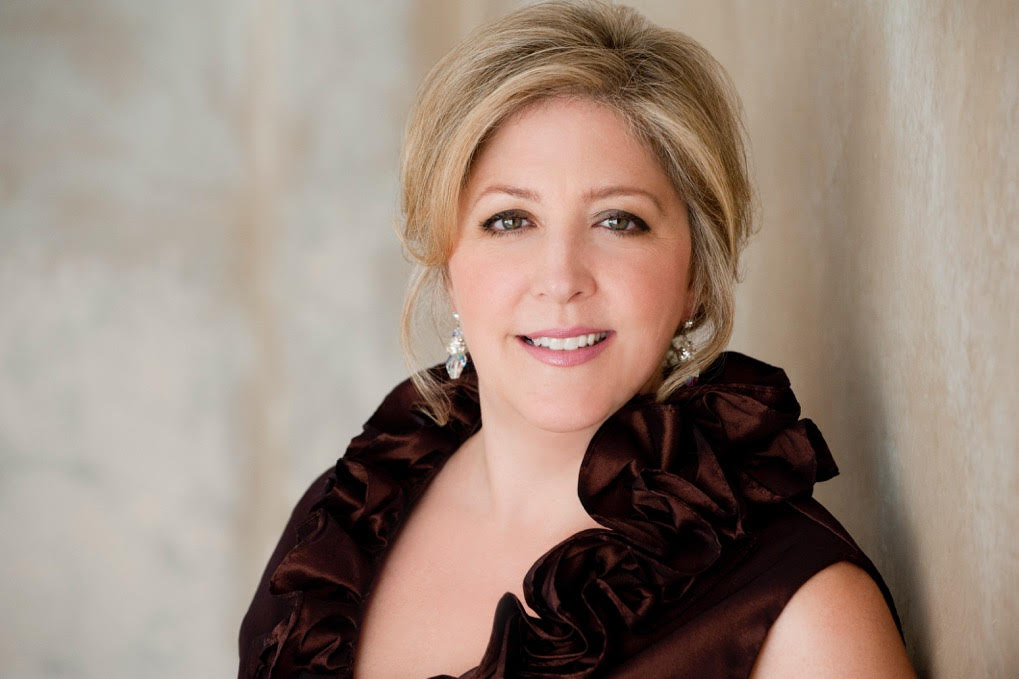Julia Rolwing is a singer and adjunct professor of voice at Montclair State University and Kean University, both in New Jersey. She’s head of the NJ Vocal Arts Collaborative, which will host a virtual online summit, open to all interested singers, this summer.
Last year she staged and starred in her own production of “Tristan und Isolde,” the Richard Wagner opera about forbidden love that can run upward of four hours.
She lives in North Bergen, just across the Hudson from Manhattan.
How she got there is a story of vocation, faith, and passion.
Julia was born and raised Catholic in the Columbus, Ohio, area. “My father blessed us each night with holy water; my parents prayed. They gave me the sacrament-loving faith that has sustained me all my life.”
As an 11-year-old, she was in the band room with 60 or so other kids. One day her middle-school teacher, Marion Canter, exhorted the choir, “Sing it like Julie!” (the nickname by which she was then known). The moment was seminal. “I didn’t know I was good at anything. I grabbed hold of that and chased it till, decades later, I got my doctorate.”
In high school, she had another mentor. “Mr. Joe Thrower was a black gentleman who dressed in elegant three-piece suits and held us to the highest standards. Everyone else was afraid of him but we choir students adored him. He gave us sacred music — the Psalms, Mozart, Beethoven.”
When Julia was about to graduate from high school, he took her aside one day and asked about her plans for the future. “I told him I’d probably become an English teacher or a nurse.” Mr. Thrower very firmly said, “No. You will go to Ohio State and you will major in music. I will play for your audition.”
She graduated from Ohio State and, like Mr. Thrower, became a choir director. She took Mr. Canter’s job at her old school when he retired, teaching fifth through eighth grade for the next nine years. “I was born to be a teacher. It’s how I pay my bills and it’s been so rewarding.”
But deep in her heart, she secretly wanted to sing.
“I didn’t know what to do with my desire. I sang choral music locally, which was beautiful but I began to find it too confining. I didn’t know any opera singers. I was very shy, studious. I didn’t seem the type.”
Nonetheless, while teaching middle school she continued taking voice lessons at Ohio State. Her department head eventually suggested taking a sabbatical and completing her masters. She moved to a tiny cell of a graduate dorm for one semester.
“I got to take all these great classes: Sacred Oratorio Literature, 20th-century Art Song. I earned a degree in vocal pedagogy: the anatomy, physiology, and psychology of singers. The information was useful in teaching, of course, but also for my own singing.”
During this time Julia had surgery to remedy a childhood leg injury. She was walking around campus with a cane one night when she did something she’d never done before: She prayed for a sign. “What am I supposed to do once I get this degree?” she asked God.
Shortly afterward, she was putting together the music for her masters’ recital when she came across an American composer: Richard Hundley.
She called information, found Hundley’s phone number in Greenwich Village and left him a message. Two weeks later, he called back and said, “Send me five dollars for postage and I’ll mail you the sheet music.” Later she traveled to his New York loft and met him.
He took one look at me and said, “What a wonderful face! … And you’re stage size!”
Then she sang. “You must pursue performing,” Hundley decreed.
When she asked why, he replied, “I was the studio pianist for the great Madame Zinka Milanov. I have heard the most famous singers in the world. You have something many of them don’t have. You have the beautiful voice, but also the ability to communicate words and their meaning.”
Hundley gave her the courage to quit her job in Ohio. She found her way to the University of Miami where, in return for teaching, she was cast in a lead role in every opera and in 2001 earned a doctor of music arts in voice performance. She did her doctoral essay on Richard Hundley.
Back in New York, she continues to sing, to teach, to mentor, and now to host that summer summit for young musicians.
With her late-developing dramatic voice, Julia has won many awards for singing the most arduous and beautiful music of Richard Wagner, which requires maturity at every level of the personality.
Both of her university teaching jobs are part time. “It can be scary. I live literally and figuratively on the edge of a cliff. Many times I’ve said, ‘OK Lord, I’m going to become an average person, with a stable life.’ ”
But a full-time teaching job would mean the end of her dramatic singing. “And I’ve always gotten a direct message either from God, or a spiritual director, or a priest that says, ‘No, you may not stop following your singing.’ ”
Rolwing’s story is about many things. One is the inestimable value of a teacher who cares.
“The two things that saved me were my music and my faith. My parents gave me my faith. But Joe Thrower saw the music in me.”

